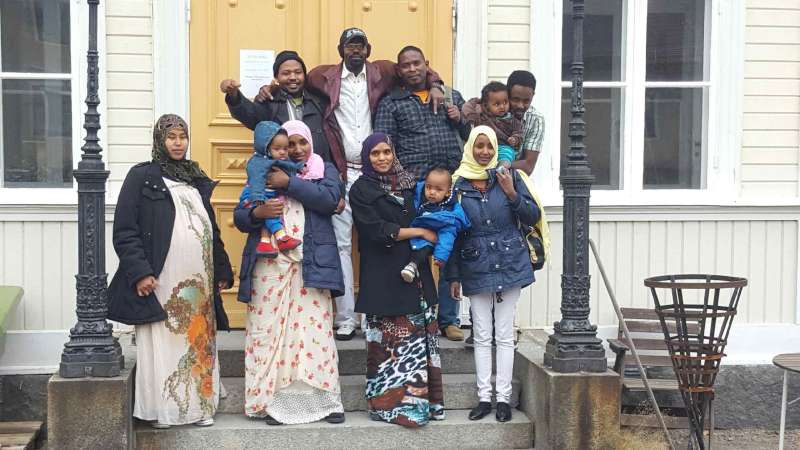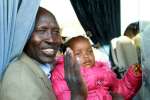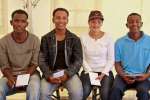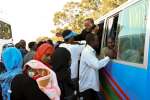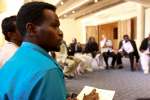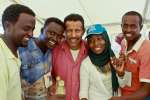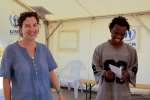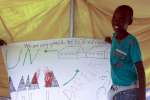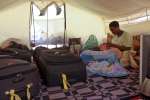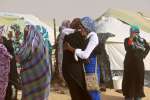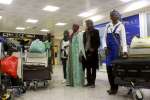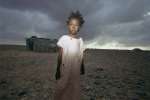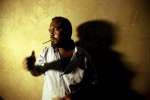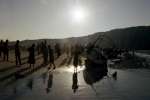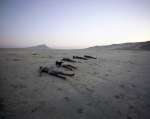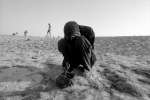Ethiopian refugee family from Yemen start over in Sweden
News Stories, 31 December 2015
HUDIKSVALL, Sweden, Dec 30 (UNHCR) – One evening last summer, Ibrahim Nur and his family stepped out of a bus and looked out over the Baltic Sea. The air was crisp and all they could hear was the sound of the waves hitting the shore.
Finally, after 13 years as refugees in Somalia and Yemen, they had found a new home. But it was one where climate, culture and environment could barely be more different to the baking-hot Horn of Africa where persecution and conflict had matched their every step.
"It's very dark and quiet here during the wintertime, but we love it," said Ibrahim, 35.
Along with his wife Mawardi and four children, he has now lived for five months in their new 'home' in the small parish of Delsbo in the north of Sweden and says they all love it.
"People are so friendly. Our kids are so fond of their new school and friends that they cry every single day when they have to go home."
It has been a long, hard journey to the peace and quiet of northern European. Now, new challenges await.
"The first couple of weeks it felt impossible to learn Swedish," said Ibrahim. "It sounded like someone was singing. But then it became so much easier. I want to learn Swedish as quickly as possible to integrate better and to get a job."
The cold stillness of the Swedish landscape, the calmness of the forest and the family's first European winter are now approaching. The kids can't wait. For the first time in their lives they will experience snow and the possibility to skate and ski, something they couldn't even dream about a couple of months ago.
"We are so happy every morning when we wake up, looking forward to a new day in our new home," Ibrahim added. "Now we dare to think about life in a positive way filled with opportunities. It's not going to be easy but we are filled with confidence."
Those flown to Sweden will benefit from its integration and reception programmes, including preparatory courses in the language. Ibrahim and Mawardi are now attending a government-run programme for immigrants that teaches them Swedish on a daily basis.
Originally from Badessa in Ethiopia's Oromia region, Ibrahim and his wife were forced to flee to Garowe in neighbouring Somalia in 2002.
"I was accused of supporting the Oromo Liberation Front (OLF) so we had no choice but to leave," explained Ibrahim in reference to an armed separatist movement outlawed by the Ethiopian government. "After six difficult years in Somalia we decided to leave once again, this time to Yemen."
After 36 perilous hours aboard a cramped rubber boat, Ibrahim and his family reached Yemen. "At one point I thought we never would make it alive over the sea," he said. "We were so frightened. It was unbearable. I thank God that we survived."
But the trauma was far from over. Since March, renewed conflict in Yemen has claimed almost 6,000 lives and wounded 27,000. Those killed and wounded include refugees and displaced Yemenis. In total, there are 1.5 million people displaced.
In the country's capital of Sana'a, Ibrahim and his family were among those vulnerable to airstrikes, shelling and battles between the exiled government and rebels. They were constantly harassed and worried for their survival.
However, on April 14, 2015 they learned from UNHCR that they would be resettled to Sweden.
Ibrahim and his family had been on the move for so many years that they couldn't quite believe it was true.
"It wasn't until we actually sat on the plane that we realised that this was about to happen," said Ibrahim. "It was an indescribable feeling. We were handed a document that we were told not to lose. It was our gateway to Sweden. In a way this small piece of paper became the symbol of our struggle, so we framed it and now it hangs in our living room in our apartment in Delsbo."
Their story is similar to that of many refugees stranded in Yemen. Two hundred and fourteen refugees from the region were resettled in 2015 and, with the conflict escalating, UNHCR has arranged to resettle a further 53. Several of these refugees are women-at-risk, survivors of violence and torture, or in need of medical attention.
UNHCR in Yemen is managing these resettlements amid ongoing warfare and a lack of durable solutions.
By Mattias Axelsson/David Gunther, Sweden




